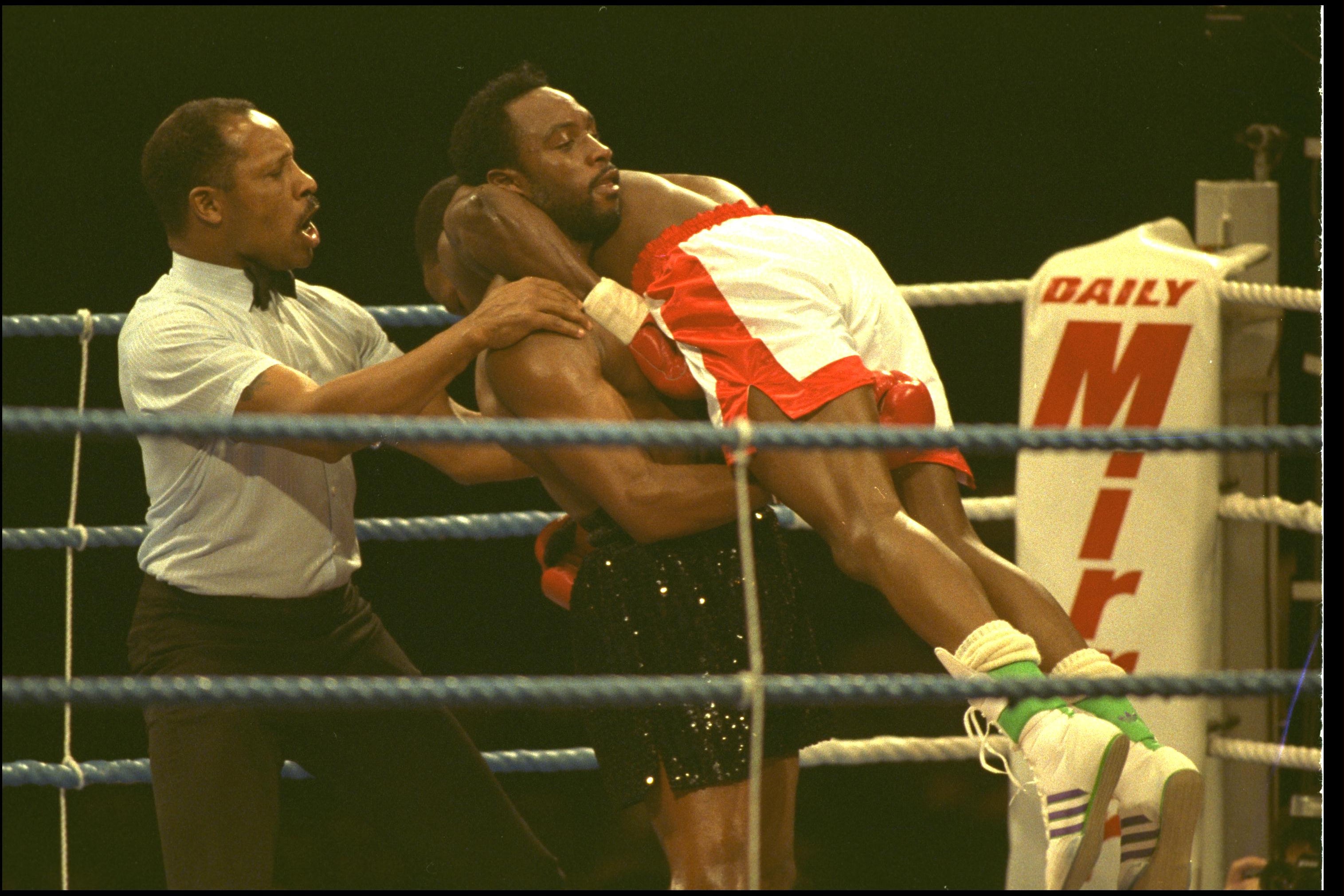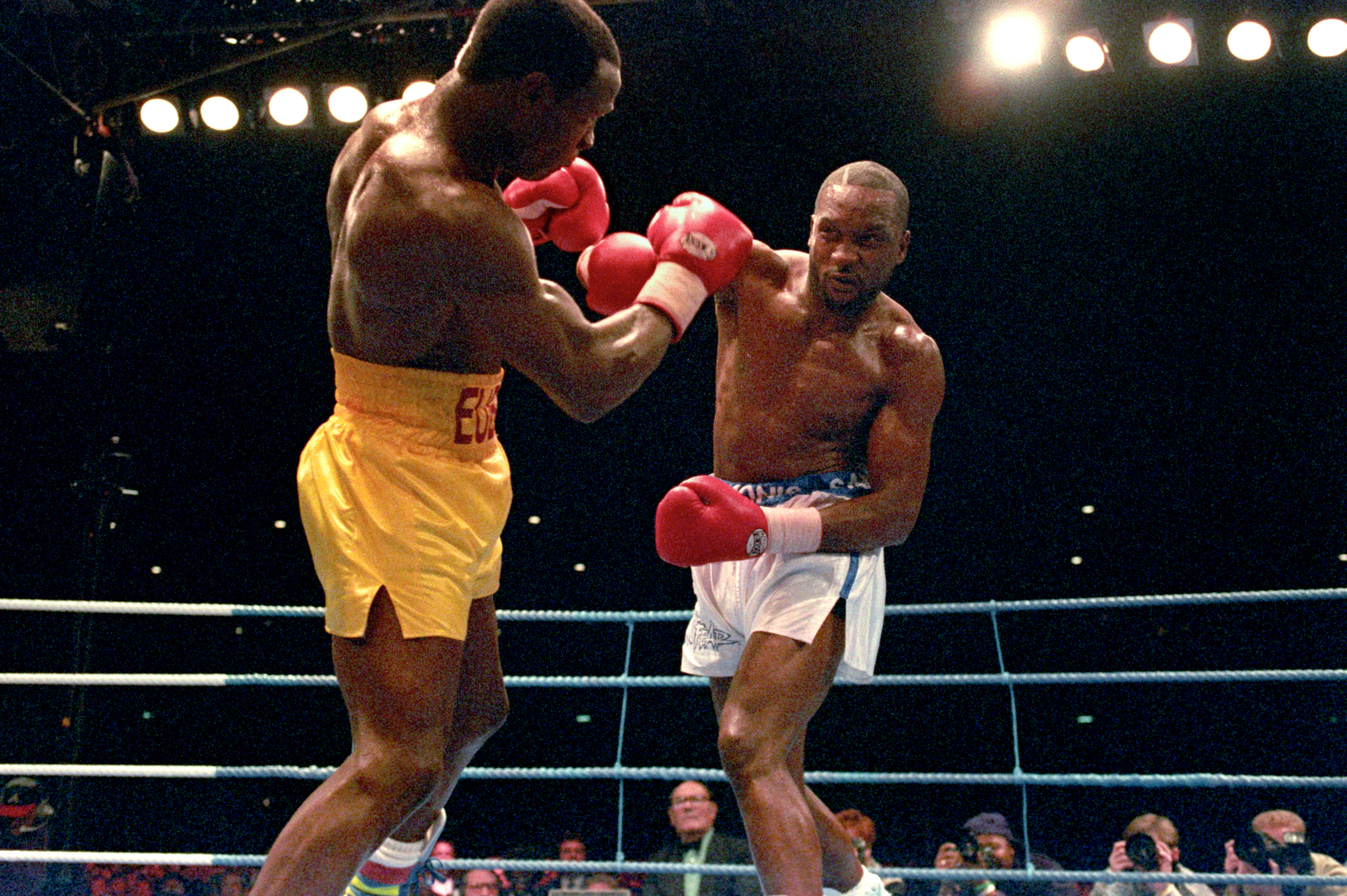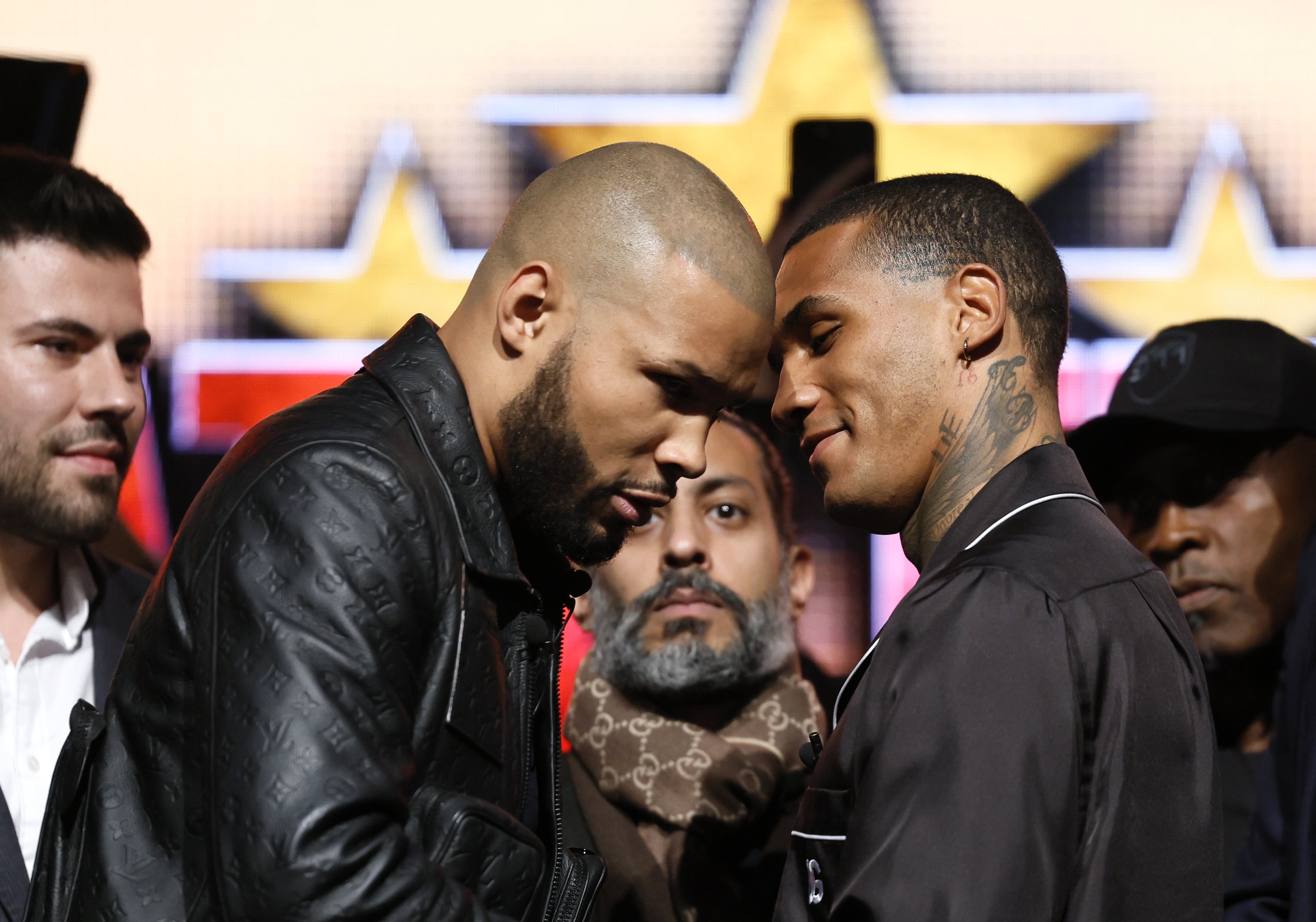
Nigel Benn never took his eyes off Chris Eubank the first time they met in a boxing ring in 1990.
It was a Sunday night at the NEC on the outskirts of Birmingham and British boxing would never be the same again. It was the night the sport moved from its comfortable black and white tradition to a world of colour and incident.
Both fighters were different and not products of the usual boxing factories; the promoters, managers and high-profile hangers-on were all part of a new business. Barry Hearn (promoter and friend to Eubank) and Ambrose Mendy (hype maestro, adviser and friend to Benn) made the madness happen. It was the start of the fight circus that we now accept; Eubank and Benn meetings were visually and verbally electric – the sons continued that tradition. The hate was real; Benn admitted it; Eubank still denies it. It all looks so perfect now, choreographed even, but it was all new at the time and raw. Eubank was an enigma, and Benn was a perfect dance partner.

It was chilling being at ringside and so close to the intensity of the two boxers; it was obvious all week in Birmingham that something special was going to happen. There was simply too much on the line, it was always more than a title fight. Remember, neither Benn nor Eubank could be considered the best or even the second-best middleweight in Britain at the time. This was a fight between characters, style, image – and it was between two men with a promise to fight until the bitter end. It was all new, trust me, and the papers loved it.
The WBO belt that Benn was defending meant very little at the time, and the British Boxing Board of Control did not recognise the sanctioning body; the fight launched the WBO and that changed the sport in Britain with an endless stream of title fights from that night until the present day. It was not just a fight – it was a monumental game-changing event. There was genuine disbelief because the ringside seats were two hundred quid for a fight over a “worthless piece of plastic”, according to one senior scribe.
Those were very different days in the press seats, a place packed with a lot of seasoned men; a dozen or more had been at the Rumble in the Jungle, all wore ties, and Neil Allen of the London Evening Standard had gone to his first Olympics – Melbourne in 1956 – by ship! They were the last of the ancient days. I was just 27 and I felt like a child alongside the giants.
Early in the week, I had a story from a health club in Birmingham that Benn was struggling at the weight, and he was. I think that was a quick 500 words in the paper and that is how the week went: stories each day, visits to gyms and hotels to speak to the boxers. And celebrity spotting – Bob Geldof in his shades and cowboy boots was all over Birmingham that week. And then it was the fight.
Richard Steele, the world’s most famous referee at the time, pulled them together for a final word. He knew the fight was special; he had seen Benn destroy Iran Barkley a few months earlier in Las Vegas. That had been a WBO defence, and most of the British boxing press considered the title meaningless, which meant the win went under the radar. I believe Eubank changed the thinking of the boxing writers because we had never seen an eccentric like that before. There was still the great unknown with Eubank: could he really fight?

It was furious from the opening bell, and it stayed that way until Steele jumped between them with just a few seconds left in the ninth round. Benn’s left eye was closed, Eubank had been swallowing his own blood for rounds, and they had fought each other to a savage standstill in an unforgettable fight. Nobody wanted to back down, nobody wanted to turn away from the ferocity. It was one of the greatest fights to ever take place in a British ring, an instant classic. It was personal long before the first bell and long before Steele saved Benn from his own deep, deep bravery. At the very end, Benn said: “I detest him, but I respect him.” Eubank could not even attend the post-fight conference.
The statistics only tell part of the story; Eubank moved to 25 wins in 25 fights; Benn lost for the second time in 29 fights. Eubank was just 24, Benn 26. The real measure of the fight’s toll has nothing to do with those types of numbers: Eubank was lifted in and out of a cold bath by his trainer, Ronnie Davies, after the fight and needed seven weeks to recover. Benn was broken in defeat, his hate even stronger, and that is something inside that simply refuses to be measured. It is impossible to calculate a boxer’s desire.
They went down their separate paths after that fight. There was no rematch clause, Eubank and Hearn had a smart agenda to fight on a regular basis with little risk involved. Benn hunted Eubank down, moved to super-middle to chase him, won a world title and finally, in October 1993, they met again. The backdrop was the Theatre of Dreams, and at the end of 12 amazing rounds, it was a draw. Then, they walked away from each other again and this time it was permanent: two men who changed British boxing and set a standard for sacrifice, pain, suffering and devotion in two fights of wonder.

It was a true privilege, a highlight of too many years at ringside, to be present and working at both. This Saturday is, in many ways, a ghost of a fight, a reminder of two nights that nobody present will ever forget. Or want to ever forget.
Chris Eubank Sr breaks down in tears and brands Eubank Jr vs Benn ‘a disgrace’
Chris Eubank Jr compensates undercard fighters from cancelled Conor Benn fight
When is Eubank Jr vs Benn? Fight start time, undercard and how to watch on TV
Chris Eubank Sr breaks down in tears and brands Eubank Jr vs Benn ‘a disgrace’
Eddie Hearn teases Chris Eubank Jr over his ‘excuse’ ahead of Conor Benn fight
Eddie Hearn offers counter after Chris Eubank Jr accepts £1m bet to ‘trick public’







